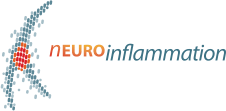Early Stage Researchers

What is your project/research about?
Cerebral stroke is one of the leading causes of death and disability in the industrialized world. Post-ischemic inflammation is the secondary consequence of the neuronal damage and delayed cell death, involving the activation of the innate immune system of the CNS, which comprises microglia and macrophages residing in the perivascular and leptomeningeal spaces. Acute intense or chronic activation of resident cells not only exacerbate the disease pathology, but also facilitate the recruitment of peripheral immune cells in to the CNS, which might play an important role in modulating the disease phenotype. Bone-marrow derived monocytes/macrophages are the major infiltrates from the blood, which peaks during the sub-acute phase of the inflammation. In my project, I am trying to address the following questions using rodent models of cerebral ischemia.
- Recent evidences from different inflammatory disease models shows that microglia and infiltrating macrophages are functionally different population contributing distinctively to the disease progression. The primary objective of the project focuses on dissecting the functional properties resident and CNS infiltrating macrophages and their role in cerebral ischemia induced neuroinflammation.
- Macrophages residing in the specialized structures such as perivascular and meningeal spaces, constitute the interface between the blood-brain barrier and the CNS parenchyma. Therefore, these macrophages might play a pivotal role in the recruitment of peripheral immune cells in to the CNS during inflammatory conditions. There is currently very little knowledge on the biology and functions of these macrophages population both in health and disease. Thus, I am also trying to explore the possible role of these non-parenchymal CNS resident macrophages during the inflammatory process.
Why did you apply for a Marie Curie ITN and especially this project?
Marie Curie-ITN, under the Marie Sklodowska-Curie Actions, is one of the prestigious fellowship from the European Commission aimed at funding high quality international doctoral training. The main goal, which inspired me to apply for this fellowship is that, it brings together universities, research centers and companies across the world as a consortium for the exchange of knowledge and expertise, in order to establish a long-term collaboration aiming at addressing serious scientific problem. My research internship post-graduating gradually made me to contemplate the unanswered problems in the field of neurodegenerative diseases. ITN-nEUROinflammation, was tailor-made to prepare myself for the long-term career in the field of inflammation and neurodegeneration.
What is so fascinating for you on research in general?
Curiosity, exploration and necessity are the fundamentals of a research. The thirst to understand, question and manipulate minute details of every process, enabled human-kind to fly in the sky and reach the horizons. We battled many devastating diseases that out-burst overtimes, because we understood the basis of it, in-order to prevent it. As an experimental biologist, I am fascinated that I am trying to investigate and understand the basis of a specific problem, which would facilitate the finding of possible solution in order to overcome it.
What do you do in your free time?
I never tried to become an expert in one particular thing, except my career. I always believe in ‘some knowledge in most of the things’. I try to attempt different thing during my leisure time. At present, I am learning to do canvas and glass paintings. Apart from that, I read and listen to documentary on history of human civilization and migration.
What are your plans for your future?
I will continue to be the same curious person contributing significantly to the science and society.
Regarding our meetings:
It was my first time, I could present my work and acquire ideas from such a diverse international environment. Each and every time it was a great learning experience from both the supervisors and the fellow students. The soft skills and technical workshop are the highlights of each meeting. They included the perfectly balanced sessions, focused on improving both the interpersonal skills and technical knowledge given at the appropriate time, which helped us to practice them during our studies. Mastering you PhD>Good scientific practices>Voice and speech training>Scientific writings>Biometry and statistics>Authorship and publication. I am looking forward for the last meeting on career development after PhD.


